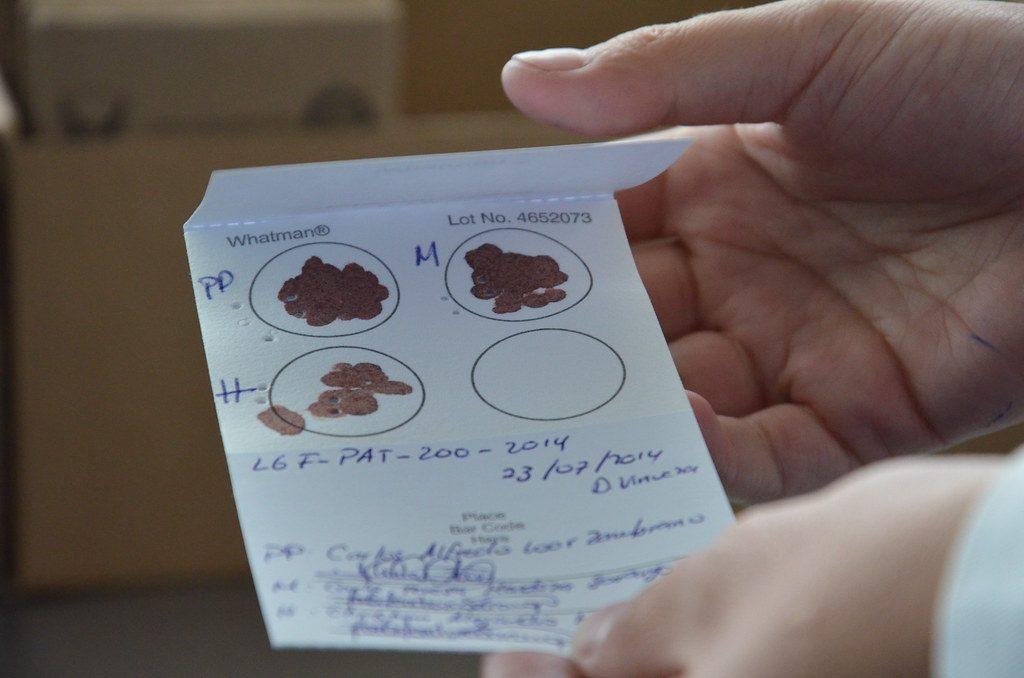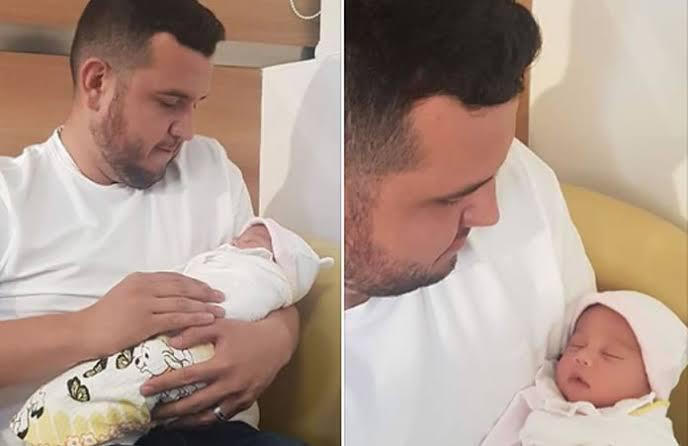Free paternity tests are done only in two laboratories in Quito
In the Servilab laboratory, buccal samples are taken for DNA. Photo: Eduardo Terán /EL COMERCIO
The 80 km journey began before dawn. At 04:30 yesterday, January 29, 2016, Cecilia and her 6-year-old son took a van from Las Golondrinas, a town in Pedro Vicente Maldonado , to the center of that canton. There they transferred to another bus that brought them to the Coca River , in the north of Quito.
The tour did not end. They took another bus that left them at 9 de Octubre and Patria.
The DNA laboratory of the Prosecutor 's Office works there. The early start was worth it, because they were the first to arrive at those offices, where they had to take a test to prove that the little boy is the son of Cecilia's ex-partner.
The journey of the two lasted three hours. But last Monday, Ximena left at 02:00 with her 4-month-old baby. She carried two suitcases with bottles, diapers, warm clothes, towels and blankets. They live in Shell , an area of Pastaza .
From there she took a bus to Quito and after six hours she was ready for the DNA test. The reason was the same: that her son be recognized.
Users from Esmeraldas, Morona Santiago, Guayas … arrive at these offices, since the Prosecutor's Office has only one laboratory in the country where paternity tests are carried out. This was confirmed yesterday by María Elisa Lara, a DNA analyst for the Prosecutor's Office, who was delegated to discuss this issue.
Despite the fact that the center of the Prosecutor's Office was created in 2010 with the purpose of analyzing DNA in criminal cases , 66% of the studies that have been carried out in those years correspond to paternity.

In figures, it means that, of the 16,598 DNA studies carried out in those six years, only 5,800 (34%) were for criminal investigation cases .
This high demand caused the lab to overflow. The biggest problems were registered in 2012. There were people who spent the night outside the laboratory. They slept there. The lines were endless . And the results were delivered after six and eight months.
Given this, in that year the judicial system created a digital shift program. Since then there are 15 daily appointments in which the time and date are set for them to attend and for the delivery of results through a platform that is accessed by children's judges in the country.
In addition, in February 2014, the Judiciary and the Ministry of the Interior signed an agreement so that the DNA laboratory of the Forensic Science Center allows paternity studies to be carried out there.
Did all this help to evacuate the orders that reach the Prosecutor's Office? Lara says that the demand is still high.
In that laboratory there are appointments taken until February 12. While in the laboratory of the Ministry of the Interior, 12 daily shifts are delivered per day and there are appointments assigned for a month. This is stated in an official statement and confirmed this week by personnel who work there.
One of the reasons why the demand in the public system is still high is the free testing. According to the Children's Code, the Ministry of Health is responsible for guaranteeing a child's right to identity when there are trials for paternity. This, especially when parents cannot afford the analysis in private laboratories.
In those private offices, it can cost USD 700 when the test is done during pregnancy and USD 300 when it is already born .
The unnumbered article 10 of the Children's Code details that in the event that a parent alleges lack of resources "the judge will order the Ministry of Health, through a Genetic Research Unit, to carry out the DNA test free of charge ."
In the public system, the results are delivered, on average, after two months of the test. For this reason, those who have economic possibilities do go to private services. For example, in the Red Cross laboratory , 3,229 paternity tests were carried out in 2015.
In Servilab , another laboratory in the south of Quito, every day there is at least one. Its director, Juan Vaca, assures that in 2007 he carried out an exam a month. Now, his lab has a mobile team with which he travels the country.
Edgar went to a private center. After six years of relationship with his partner, he discovered that the one he thought was his daughter was not biologically his .
The girl was 4 years old when she filed a lawsuit to have her surname taken away from her youngest. He did this after the little girl's mother confessed to him that she had had a relationship when he worked in the Amazon .
He spent at least USD 522 on all the medical studies. In Cecilia's case, her economic income as an employee on a farm prevents her from paying for the test in a private place and that is why they assigned her a shift at the Prosecutor's Office center. Yesterday, it was the second time that she and the boy tried to realize themselves. The first time her ex-partner did not arrive.
Despite the fact that she filed the lawsuit in May 2015, until now she has not been able to recognize her son because the alleged father refuses to undergo the study . Judicially, if a man does not attend after three calls to the examination, the judge can issue a sentence in favor of the mother and have the minor recognized.
In context Paternity claims can be requested free of charge through the Public Defender's Office. That institution processed 5,656 cases in 2015. In the same trial, the judge can determine the recognition of the minor and at the same time an alimony.







